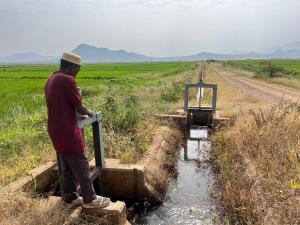Test project Pesticides and Protection Tanzania
testing out building a project
Joshua Moses
JoshuaI teach anthropology and environmental studies at Haveford College, just outside of Philly. Currently, I'm holed up in a cabin in the Adirondacks in upstate New York with several family members, including my spouse and 4 year old daughter and 3 dogs. I started working on disasters by accident, when one day in 2001 I was walking to class at NYU and saw the World Trade Center buildings on flames. I have known Kim for a few year and I contacted her to connect with folks around Covid-19 and its imacts.
I'm particularly intersted in issues of communal grief, mourning, and bereavement. Also, I'm interested in the religious response to Covid-19.
pece_annotation_1473000309
Andreas_RebmannIn this article emergency response was looked at in a very broad way, with planning for having teams, organization, and training. Logistics weren't fleshed out, but the call for a team was there. It was also potentially difficult due to internationalization of the team.
pece_annotation_1479089438
Andreas_RebmannReaders, however, often used the books for a different purpose:
identifying depression. Regularly, I received — and still receive — phone calls: “My
husband is just like — ” one or another figure from a clinical example.
HERE is where I want to venture a radical statement about the worth of
anecdote. Beyond its roles as illustration, affirmation, hypothesisbuilder and lowlevel
guidance for practice, storytelling can act as a modest counterbalance to a
straitened understanding of evidence.
pece_annotation_1473603864
Andreas_RebmannThe article emphasizes the need for a disaster-preparedness plan, with pre-existing infrastructure to address trauma and mass casualty management, as well as long-term sources of clean water and waste disposal. Assured primary healthcare and wide-spread vaccination usage help with these efforts.
Post-disaster, there will need to be intervention to ensure that these standards are being met, as well as surveillance for communicable diseases.
pece_annotation_1480606080
Andreas_RebmannThe main point was to report on the incidient which occured in NY, and it was supported by quotes from a run sheet made by the EMTs as well as a statement from the FDNY.
pece_annotation_1474151776
Andreas_RebmannThrough grants and individual donations. Honestly I have no idea, I tried searching their financial documents but it didn't really tell me anything. They don't publish who donates to them.




the rice irrigation scheme, Pare Valley, Tanzania